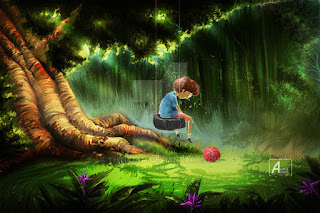O’friends moving on bikes
cars and foot, if you have ears
listen: the city cracks and croaks
beep-beep, stop this mad rush
stand, slow down your pace
stand, slow down your pace
else you’ll be lost
never to be found again.
The proud skyscrapers
concrete steel and glass
without a blade of grass
the blind-eyed stars
concrete steel and glass
without a blade of grass
the blind-eyed stars
blink at your arrogant dare.
Forests are no more dark
or deep with green
mystery
hot air chokes the lungs,
the foamy gutters, bald yards
the billowing chimney, acid gas
the black soot showers are
our return gifts to nature,
poison to her sustaining bowers.
Our studies, research, inventions
are a Frankenstein monster
will devour us into its maws
mocking our suicidal wisdom.
Beware now and change
look afresh at your own game.
Sabita Sahu
Beware now and change
look afresh at your own game.
Sabita Sahu








